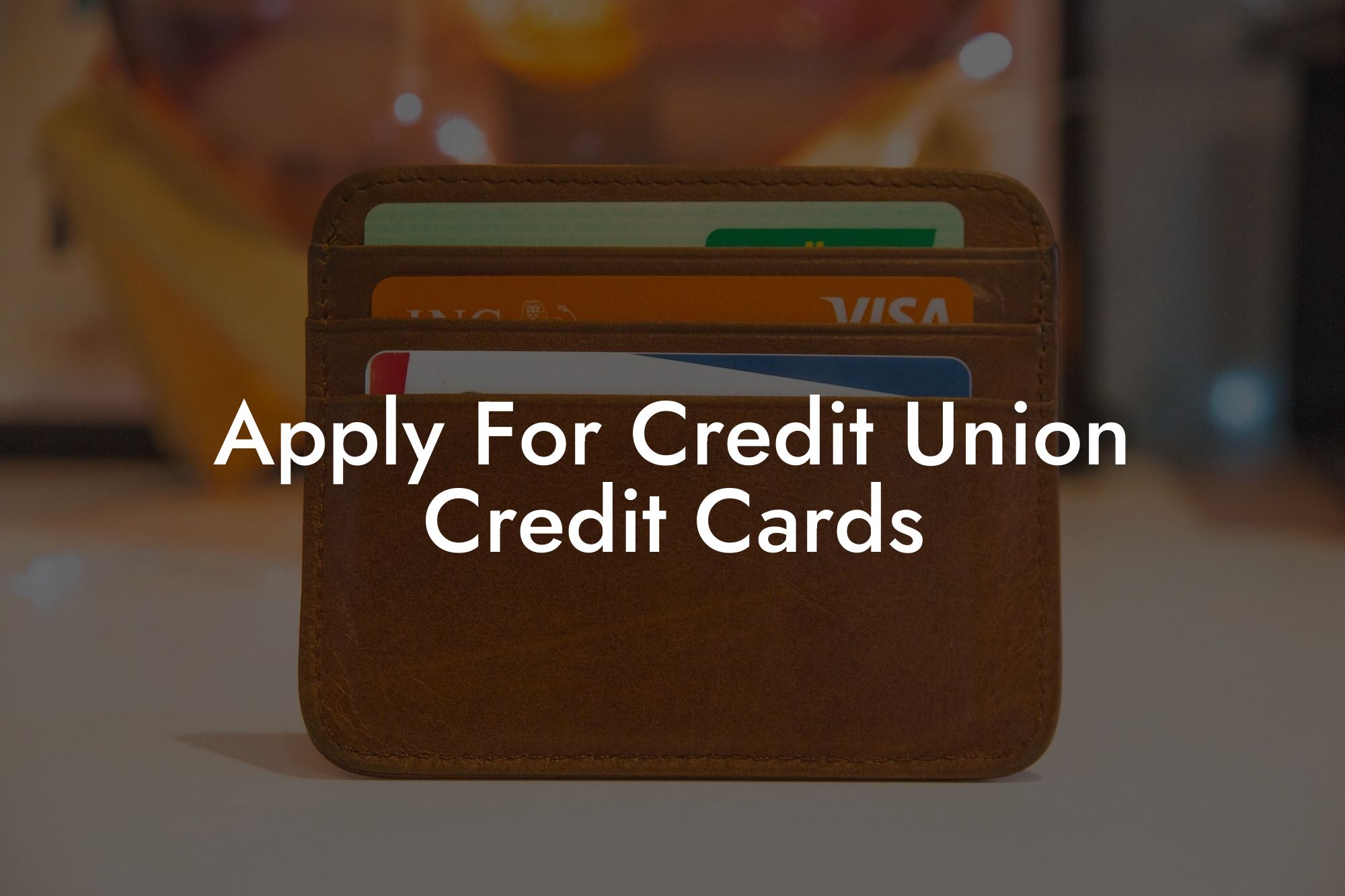Are you looking for a credit card that offers competitive rates and a more personal touch? Credit union credit cards may be the perfect option for you. In this article, we'll share everything you need to know about applying for credit union credit cards, including the unique benefits they offer and the application process. By the end, you'll have all the information you need to make an informed decision on whether this type of credit card is right for your financial needs. So let's dive in!
Quick Links to Useful Sections
Apply For Credit Union Credit Cards Table of Contents
Why Choose a Credit Union Credit Card?
Credit union credit cards may not be as popular as their counterparts issued by big banks, but they come with several advantages that make them worth considering:
- Lower interest rates: Credit unions are known for offering lower interest rates compared to traditional banks, making their credit cards more attractive for those who occasionally carry a balance.
- Lower fees: Most credit union credit cards have lower fees, including annual fees, balance transfer fees, and cash advance fees. Some even offer cards with no annual fee or balance transfer fees.
- Personalized customer service: Given their smaller size and community focus, credit unions generally offer better customer service than larger banks. You'll get a more personal touch and easier access to assistance when needed.
- Community-focused rewards programs: Credit union credit cards often come with rewards programs that focus on local businesses and services, supporting the community while still providing cardholders with valuable rewards.
How to Find a Credit Union
Before you can apply for a credit union credit card, you'll need to join a credit union. To find one that suits your needs, take the following steps:
- Search for eligible credit unions: You can use the National Credit Union Administration's (NCUA) Credit Union Locator Tool or A Smarter Choice to find credit unions near you. Note that you'll need to meet certain eligibility requirements to join, such as living in a specific area or working for a specific employer.
- Compare offerings: Once you have a list of eligible credit unions, compare their credit card offerings, interest rates, and rewards programs to find the best option for your financial needs and goals.
- Join the credit union: To join a credit union, you'll typically need to open a savings or checking account and deposit a small initial amount. This deposit is referred to as a "share" and establishes your membership in the credit union.
Applying for a Credit Union Credit Card
Once you've joined a credit union, you're ready to apply for a credit card. Here's a summary of the steps involved:
- Review credit card options: Take a close look at the credit card options available through your selected credit union, considering interest rates, rewards programs, fees, and other features.
- Check your credit: Ensure your credit score is in good shape before applying, as credit unions often have stricter credit requirements than big banks. If necessary, take steps to improve your credit score prior to applying.
- Complete the application: Fill out the credit card application, either online or in person, providing all the required information, such as your Social Security number, income, and employment details.
- Submit and wait: After submitting your application, be prepared to wait for a response. Credit unions often take longer to review applications, as they may have fewer staff members and resources. If approved, you'll receive your credit card within several weeks.
Apply For Credit Union Credit Cards Example:
Imagine Sarah, a 30-year-old teacher who wants to apply for a credit union credit card. After using the NCUA Credit Union Locator Tool, she finds a local credit union affiliated with her school district. She decides to join and opens a savings account with an initial deposit of $25 as her membership share.
Sarah then compares the credit card options offered by the credit union, opting for a card with a low annual fee and a rewards program focused on local businesses. Before applying, she checks her credit score on a free credit-reporting site and discovers it's in good shape.
She completes the application online, providing all necessary information, and receives a confirmation email stating that her application is under review. Two weeks later, Sarah gets a call from the credit union informing her that her application has been approved, and she can expect to receive her new credit card within 7-10 business days.
Congratulations, you're now equipped with all the knowledge needed to successfully apply for a credit union credit card! Credit unions offer unique benefits and a personal touch that can make managing your finances a more enjoyable experience. If you found this guide helpful, we encourage you to share it with your friends and explore the wealth of other resources available on Flik Eco. We're here to help make personal finance and investing accessible and engaging for everyone.













